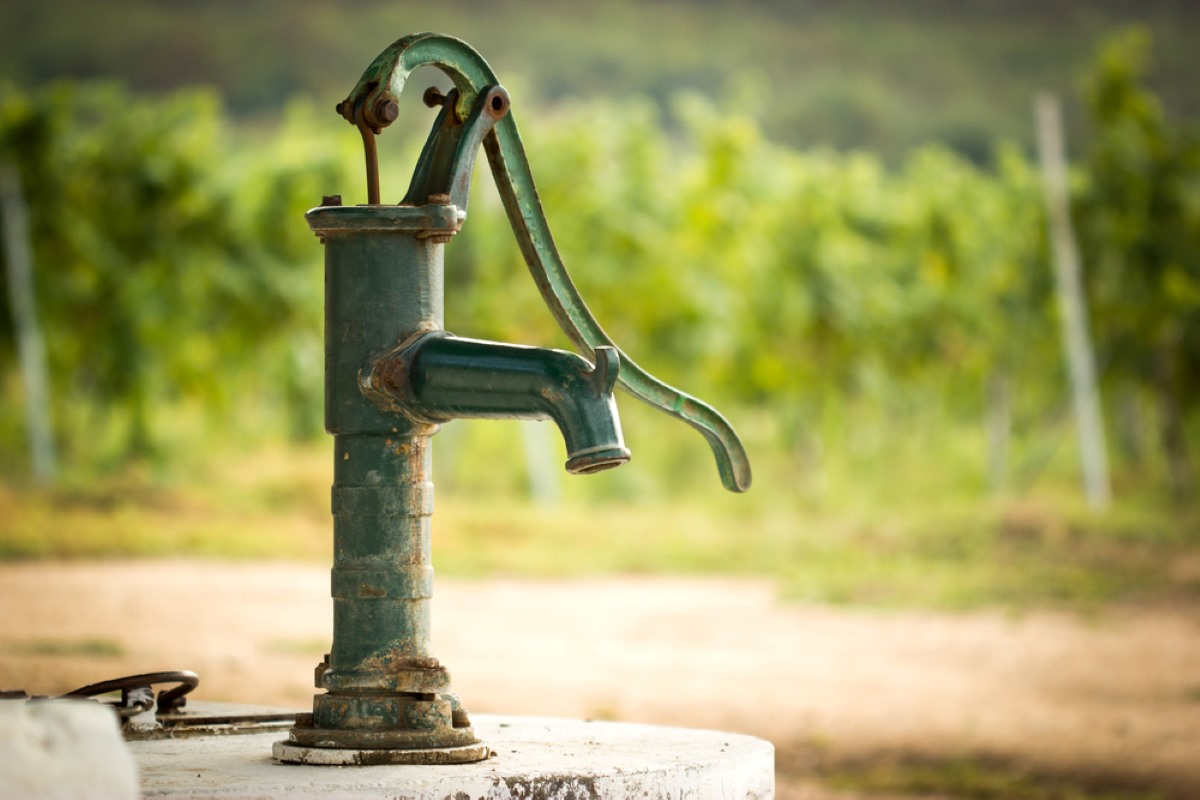

Articles
How Long Does A Well Water Pump Last
Modified: August 31, 2024
Discover how long a well water pump typically lasts with this informative article. Learn what factors can affect its lifespan and how to maintain it for optimal performance.
(Many of the links in this article redirect to a specific reviewed product. Your purchase of these products through affiliate links helps to generate commission for Storables.com, at no extra cost. Learn more)
Introduction
A well water pump is a critical component of a water well system that ensures a steady supply of water to households and properties that rely on well water. It plays a crucial role in drawing water from underground sources, such as aquifers or underground wells, and delivering it to taps, showers, and appliances.
However, like any mechanical device, a well water pump is not immune to wear and tear. Over time, it may start showing signs of aging or begin to malfunction. Therefore, understanding the lifespan of a well water pump and knowing how to recognize when it’s time for a replacement is essential for homeowners and property owners.
In this article, we will explore the various factors that affect the lifespan of a well water pump, signs that indicate a failing pump, maintenance tips to extend its life, and the average lifespan of different types of well water pumps. We will also provide step-by-step guidance on replacing a well water pump when the time comes.
By gaining a deeper understanding of these aspects, readers can make informed decisions about the longevity and maintenance of their well water pumps, ensuring a consistent and reliable water supply for years to come.
Key Takeaways:
- Factors such as pump quality, water quality, and maintenance significantly impact the lifespan of a well water pump. Regular inspections, cleaning, and professional servicing can maximize its longevity and ensure a consistent water supply.
- Recognizing signs of a failing well water pump, such as inconsistent water pressure and increased energy consumption, is crucial. Following proper maintenance and seeking professional assistance for replacement can ensure a reliable water supply for years to come.
Read more: How Long Does A Water Pump Last
Factors Affecting the Lifespan of a Well Water Pump
The lifespan of a well water pump can vary depending on several factors. Understanding these factors can help homeowners and property owners take necessary precautions and make informed decisions regarding the installation and maintenance of their well water pump.
1. Quality of the Pump: The quality and design of the pump can greatly influence its lifespan. Investing in a high-quality pump from a reputable manufacturer can significantly extend its longevity. Cheap or substandard pumps are more likely to experience premature failure.
2. Water Quality: The quality of the water being pumped can also impact the lifespan of the well water pump. Water with high levels of minerals, sediment, or other contaminants can cause increased wear and tear on the pump components, leading to faster deterioration.
3. Frequency and Duration of Use: The frequency and duration of pump operation can affect its lifespan. If the pump is running continuously for extended periods or if it has to work harder to meet the water demand, it may wear out more quickly.
4. Maintenance and Care: Proper maintenance and regular servicing play a crucial role in prolonging the lifespan of a well water pump. Regularly inspecting and cleaning the pump, checking for any leaks or malfunctions, and ensuring proper lubrication can prevent unnecessary damage and extend its longevity.
5. Well Water Pressure: The pressure of the well water also affects the pump’s lifespan. If the water pressure is consistently too low or too high, it can strain the pump and cause premature failure. Installing a pressure regulator or a pressure tank can help maintain optimal water pressure.
6. Electrical Supply: The electrical supply and wiring connected to the pump need to be properly installed and maintained. Surges, voltage fluctuations, or inadequate power supply can damage the pump’s motor and other electrical components.
7. Environmental Factors: Environmental factors, such as extreme temperatures, humidity, and exposure to harsh weather conditions, can impact the lifespan of the well water pump. Proper insulation, protection, and regular inspections can help mitigate these effects.
By considering and addressing these factors, homeowners can maximize the lifespan of their well water pump and ensure that it functions optimally for an extended period.
Signs of a Failing Well Water Pump
A well water pump that is nearing the end of its lifespan or experiencing issues may exhibit several signs of failure. Recognizing these signs will allow homeowners to address the problem promptly and avoid further damage or disruptions to their water supply.
1. Inconsistent Water Pressure: Fluctuating water pressure or a noticeable decrease in pressure can indicate a failing well water pump. This can manifest as weak showers, sputtering faucets, or difficulty in filling containers.
2. Noises and Vibrations: Unusual noises coming from the well water pump, such as grinding, squealing, or vibrating sounds, are indications of potential issues. These noises may be accompanied by noticeable vibrations felt through the plumbing system.
3. Increased Energy Consumption: If you notice a sudden spike in energy consumption without any significant changes in water usage patterns, it could be a sign of a failing well water pump. A pump that is struggling to function efficiently may consume more electricity.
4. Rapid Cycling: Rapid cycling refers to the pump frequently turning on and off within a short period, even when there is no excessive water usage. This can be a symptom of a failing pressure switch or a malfunctioning pump control system.
5. Water Contamination: Cloudy, discolored, or foul-smelling water coming from the taps can indicate pump problems. A failing well water pump may introduce contaminants into the water supply, making it unsafe for consumption.
6. Short-Cycling: Short-cycling refers to the pump starting and stopping frequently, even when there is a steady demand for water. This can be caused by a malfunctioning pressure tank or other pump control components.
7. Low Water Yield: If the amount of water being produced by the well decreases significantly, it could be a sign of pump failure or a failing well. A professional inspection can help determine the exact cause and necessary steps for resolution.
It’s important to consult a qualified well water professional if you notice any of these signs. They will be able to diagnose the issue correctly and recommend the appropriate course of action, whether it be repair or replacement of the well water pump.
Maintenance Tips to Extend the Life of a Well Water Pump
Regular maintenance is crucial for prolonging the lifespan of a well water pump and ensuring its optimal performance. By following these maintenance tips, homeowners can effectively extend the life of their well water pump:
1. Regular Inspection: Perform visual inspections of the well water pump and its components. Look for any signs of leaks, damage, or worn-out parts. Address any issues promptly to prevent further damage.
2. Test the Pump Pressure: Regularly check the water pressure produced by the pump. A pressure gauge can help determine if the pump is functioning within the recommended pressure range. If the pressure readings are consistently low or high, consult a professional.
3. Clean Intake Screens and Filters: Sediment, debris, and mineral build-up can clog the intake screens and filters, affecting the pump’s efficiency. Clean these regularly to ensure unrestricted water flow and prevent unnecessary strain on the pump.
4. Inspect Electrical Connections: Check the electrical connections, wires, and cables connected to the well water pump. Ensure they are properly insulated, secure, and free from damage. Loose or exposed wires can pose a safety hazard and cause electrical issues.
5. Lubrication: Some components of the well water pump may require lubrication to reduce friction and wear. Consult the manufacturer’s guidelines or seek professional advice to determine the appropriate lubrication schedule and type of lubricant to use.
6. Maintain Adequate Water Level: It’s important to maintain a sufficient water level in the well to prevent dry running. If the well water drops too low, the pump can run dry, causing damage to its internal components. Regularly monitor and maintain the water level to ensure the pump has a reliable water source.
7. Schedule Professional Servicing: Engage the services of a professional well water pump technician for regular servicing. They can conduct thorough inspections, perform necessary repairs, and ensure that the pump is functioning optimally.
Remember, prevention is always better than cure. Regular maintenance and proactive measures can help identify and address potential issues before they escalate, prolonging the life of the well water pump and reducing the risk of sudden breakdowns.
Regular maintenance and proper care can help extend the lifespan of a well water pump. It is recommended to have the pump inspected and serviced annually by a professional to ensure it continues to function efficiently.
Average Lifespan of Different Types of Well Water Pumps
The lifespan of a well water pump can vary depending on factors such as usage, maintenance, and quality of the pump. However, here is a general overview of the average lifespan of different types of well water pumps:
1. Submersible Pumps: Submersible pumps are commonly used in deep wells and are designed to be submerged in water. These pumps are known for their durability and can last anywhere between 15 to 25 years with proper maintenance and care.
2. Jet Pumps: Jet pumps are typically used in shallow wells and are installed above ground. They work by creating suction to draw water up from the well. On average, jet pumps have a lifespan of around 10 to 15 years, but this can vary depending on usage and maintenance.
3. Constant Pressure Pumps: Constant pressure pumps are a more advanced type of well water pump that provides a consistent water pressure regardless of the demand. These pumps usually have a longer lifespan compared to traditional pumps and can last between 20 to 30 years.
4. Solar-Powered Pumps: Solar-powered well water pumps utilize solar energy to pump water from wells. These pumps are known for their energy efficiency and longevity. With proper maintenance, solar-powered pumps can last between 20 to 30 years.
It’s important to note that these are just average lifespans and individual experiences may vary. Factors such as water quality, usage patterns, and maintenance practices can significantly impact the actual lifespan of a well water pump.
Regular maintenance, prompt repairs, and following the manufacturer’s guidelines are all essential for maximizing the lifespan of any type of well water pump. Consult with a professional well water pump technician for specific recommendations based on your pump’s make and model.
Read more: How To Prime A Water Pump On A Well
Steps to Replace a Well Water Pump
If your well water pump is no longer functioning properly or has reached the end of its lifespan, you may need to replace it. Here are the general steps to follow when replacing a well water pump:
1. Shut Off the Power: Before starting any work, ensure that the power to the well pump is turned off. Locate the circuit breaker that controls the pump and switch it off to prevent any electrical accidents.
2. Gather Necessary Tools and Materials: Gather all the tools and materials needed for the replacement, including a new well water pump, pipe wrench, Teflon tape, pipe cutter, PVC glue, and pipe fittings. Having everything prepared in advance will make the process smoother.
3. Disconnect the Old Pump: Begin by disconnecting the electrical connections and wires connected to the old pump. Use a pipe wrench to loosen the fitting that connects the pump to the main water line. Be careful not to damage any pipes or components during the disconnection process.
4. Remove the Old Pump: Once the electrical connections and water line are detached, carefully remove the old pump from the well casing. This may require using a pump puller or enlisting the help of a professional if the pump is deeply submerged.
5. Install the New Pump: Lower the new well water pump into the well casing, ensuring it is securely positioned. Use Teflon tape to wrap the threads of the pipe fittings and make a watertight connection between the pump and the main water line. Tighten the fittings with a pipe wrench.
6. Reconnect Electrical Connections: Connect the electrical wires to the new pump according to the manufacturer’s instructions. Ensure the connections are secure and properly insulated to avoid any electrical hazards.
7. Test the System: Once the pump is installed and all connections are secure, turn on the power to the pump. Run water in different parts of the house to check for proper water flow and pressure. Monitor the system closely to ensure everything is functioning as expected.
8. Conduct a System Check: Take the time to check for any leaks, unusual noises, or other issues in the system. Fix any problems immediately to prevent further damage and ensure the longevity of your new well water pump.
It is important to note that well water pump replacement can be a complex task, and it is recommended to seek the assistance of a qualified well water professional for a smooth and successful replacement process. They have the knowledge, experience, and tools to efficiently replace the pump and ensure its proper functionality.
Conclusion
A well water pump is a vital component of a water well system, responsible for delivering a steady and reliable water supply to homes and properties. Understanding the lifespan of a well water pump and being aware of the signs of failure are crucial for homeowners and property owners.
In this article, we have covered the factors that can affect the lifespan of a well water pump, including the quality of the pump, water quality, frequency and duration of use, maintenance and care, well water pressure, electrical supply, and environmental factors.
We have also discussed the importance of recognizing the signs of a failing well water pump, such as inconsistent water pressure, unusual noises and vibrations, increased energy consumption, rapid cycling, water contamination, short-cycling, and low water yield.
To extend the life of a well water pump, regular maintenance is essential. By conducting regular inspections, cleaning intake screens and filters, inspecting electrical connections, providing adequate lubrication, maintaining a sufficient water level, and scheduling professional servicing, homeowners can maximize the lifespan of their well water pump.
Furthermore, we have provided an overview of the average lifespans of different types of well water pumps, including submersible pumps, jet pumps, constant pressure pumps, and solar-powered pumps. It’s important to note that individual experiences may vary, and proper maintenance practices can significantly impact the actual lifespan of a well water pump.
If it becomes necessary to replace a well water pump, following the proper steps is crucial. Shutting off the power, gathering necessary tools and materials, disconnecting the old pump, removing the old pump, installing the new pump, reconnecting electrical connections, testing the system, and conducting a system check are the typical steps involved in the replacement process.
In conclusion, by understanding the lifespan of a well water pump, recognizing signs of failure, implementing proper maintenance practices, and taking appropriate action when replacement is necessary, homeowners can ensure a reliable and uninterrupted water supply for their homes and properties for years to come.
Frequently Asked Questions about How Long Does A Well Water Pump Last
Was this page helpful?
At Storables.com, we guarantee accurate and reliable information. Our content, validated by Expert Board Contributors, is crafted following stringent Editorial Policies. We're committed to providing you with well-researched, expert-backed insights for all your informational needs.
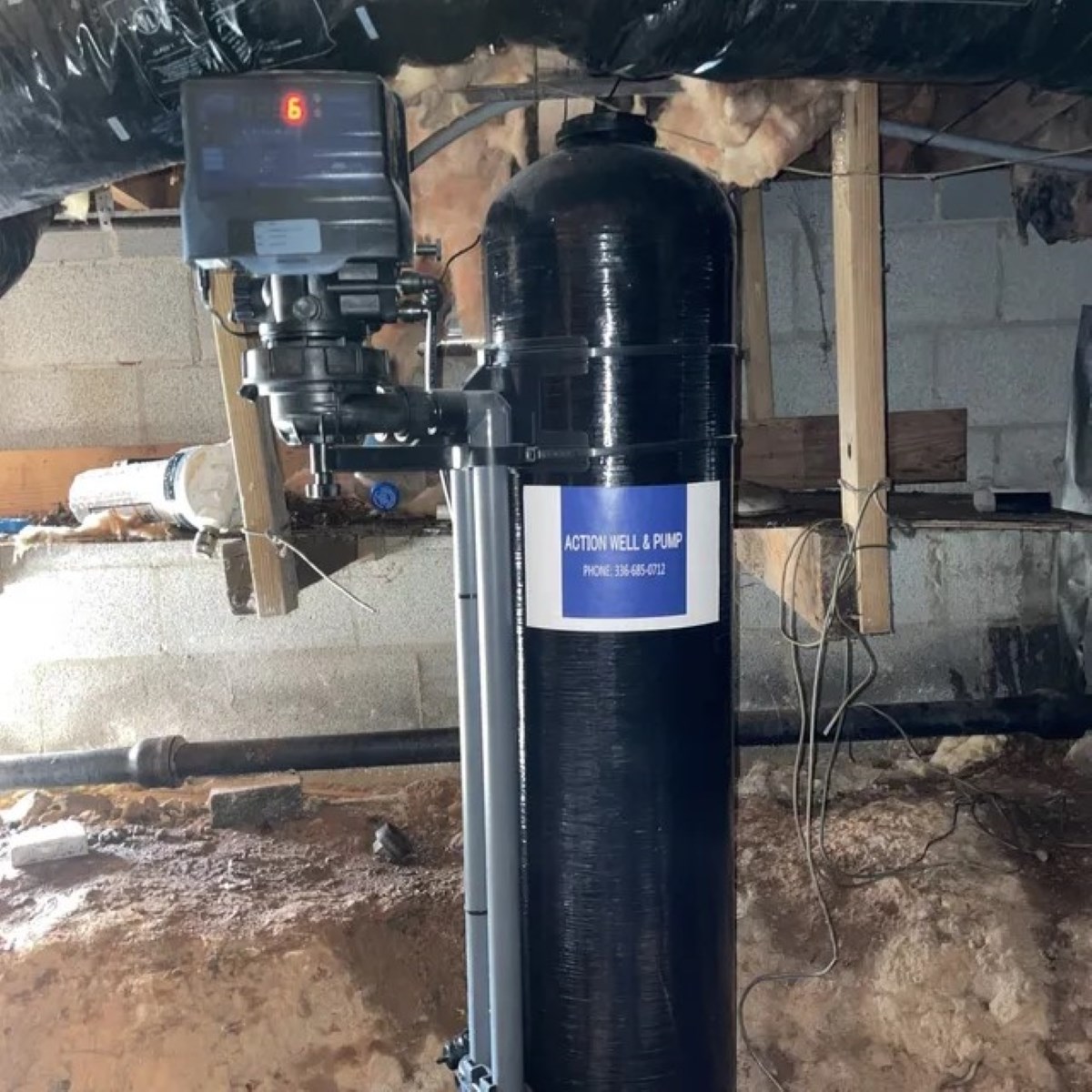
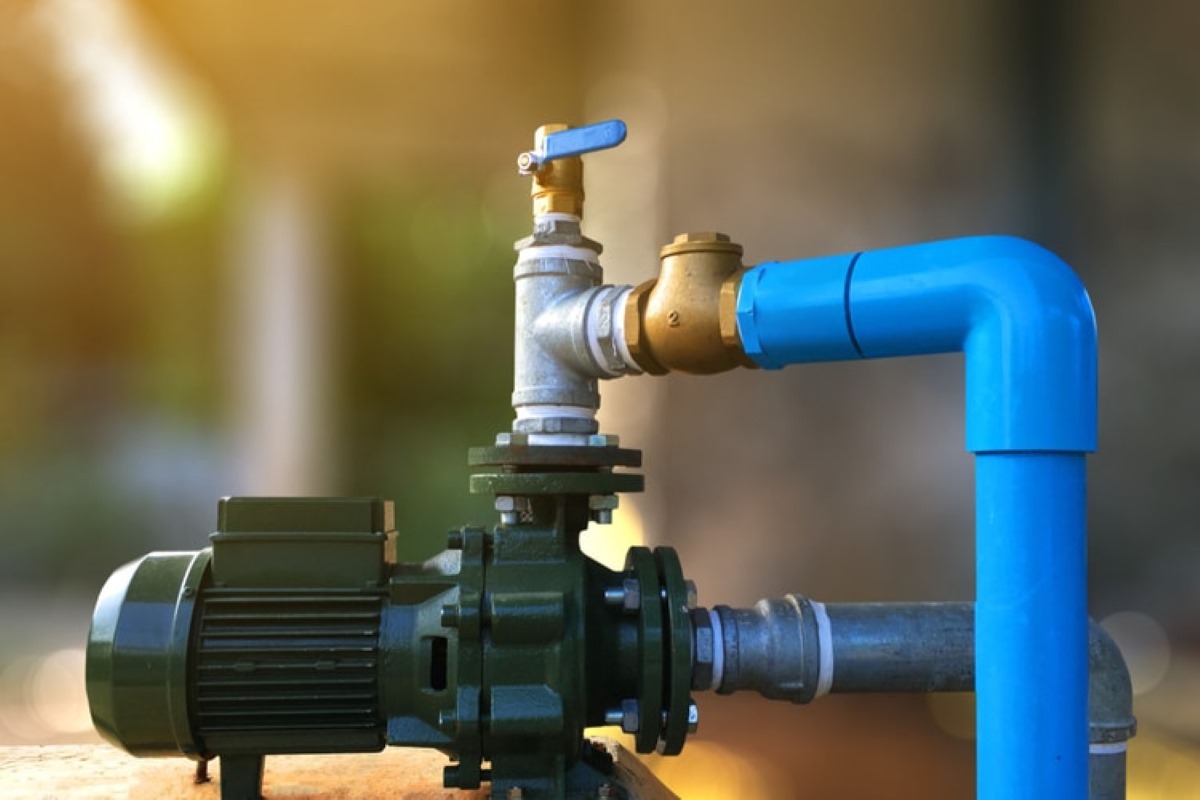
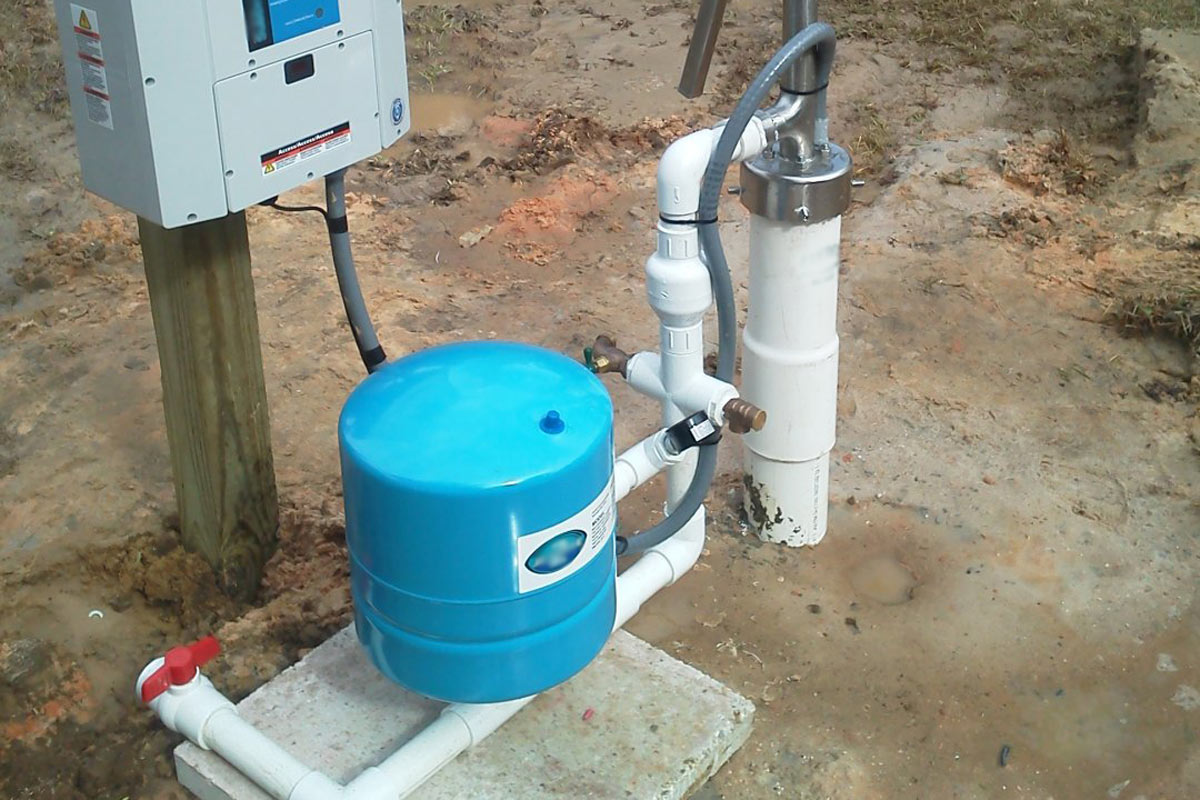
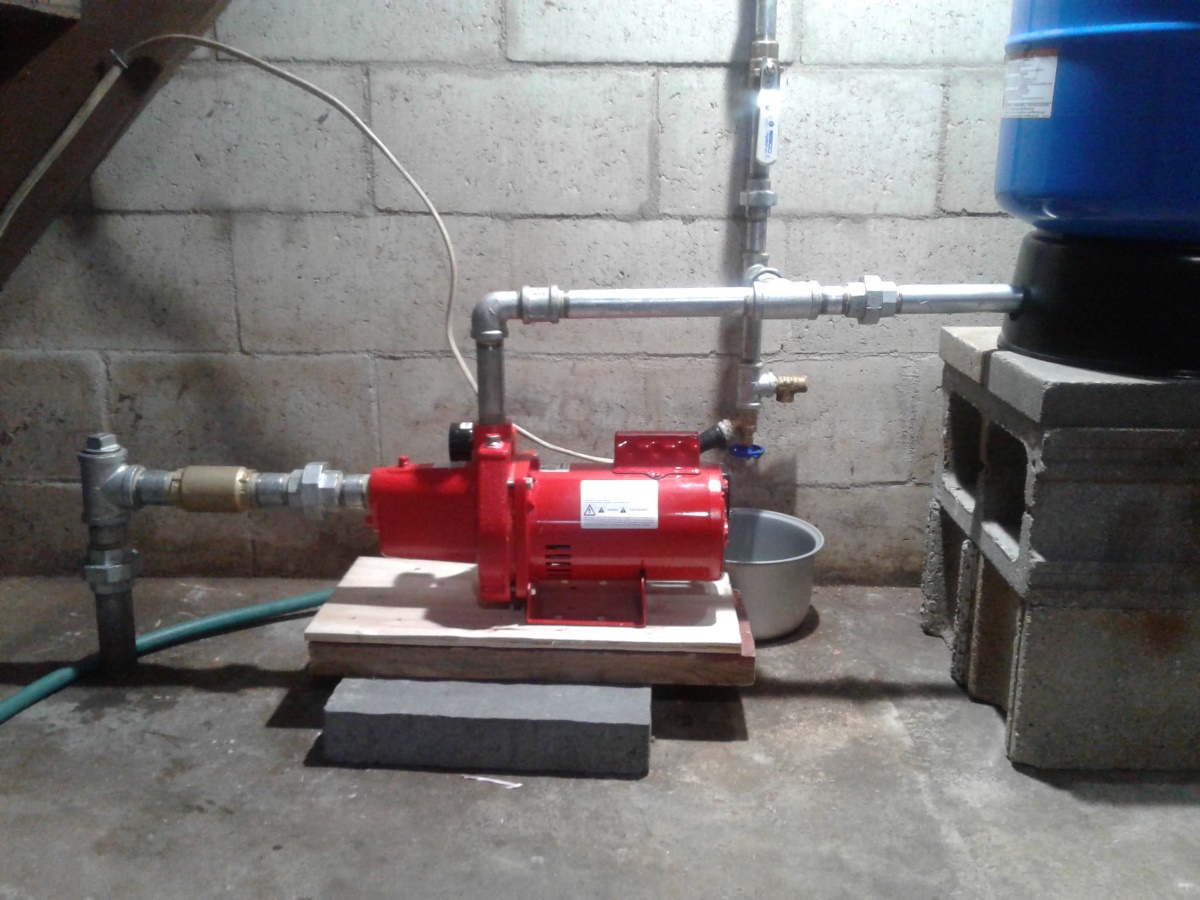
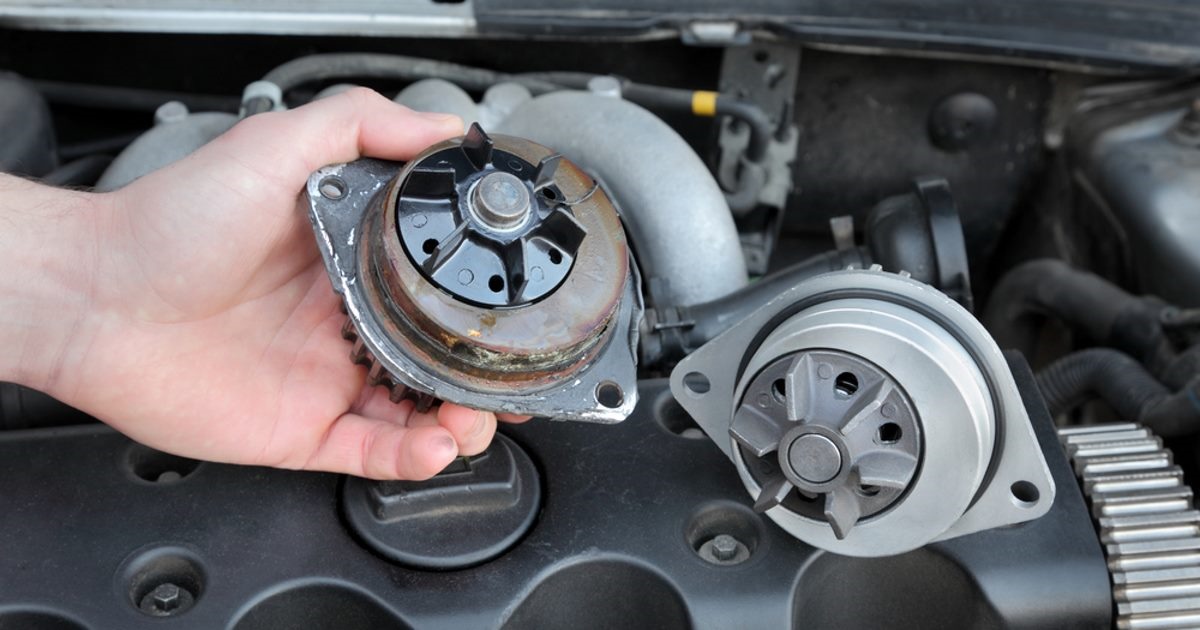
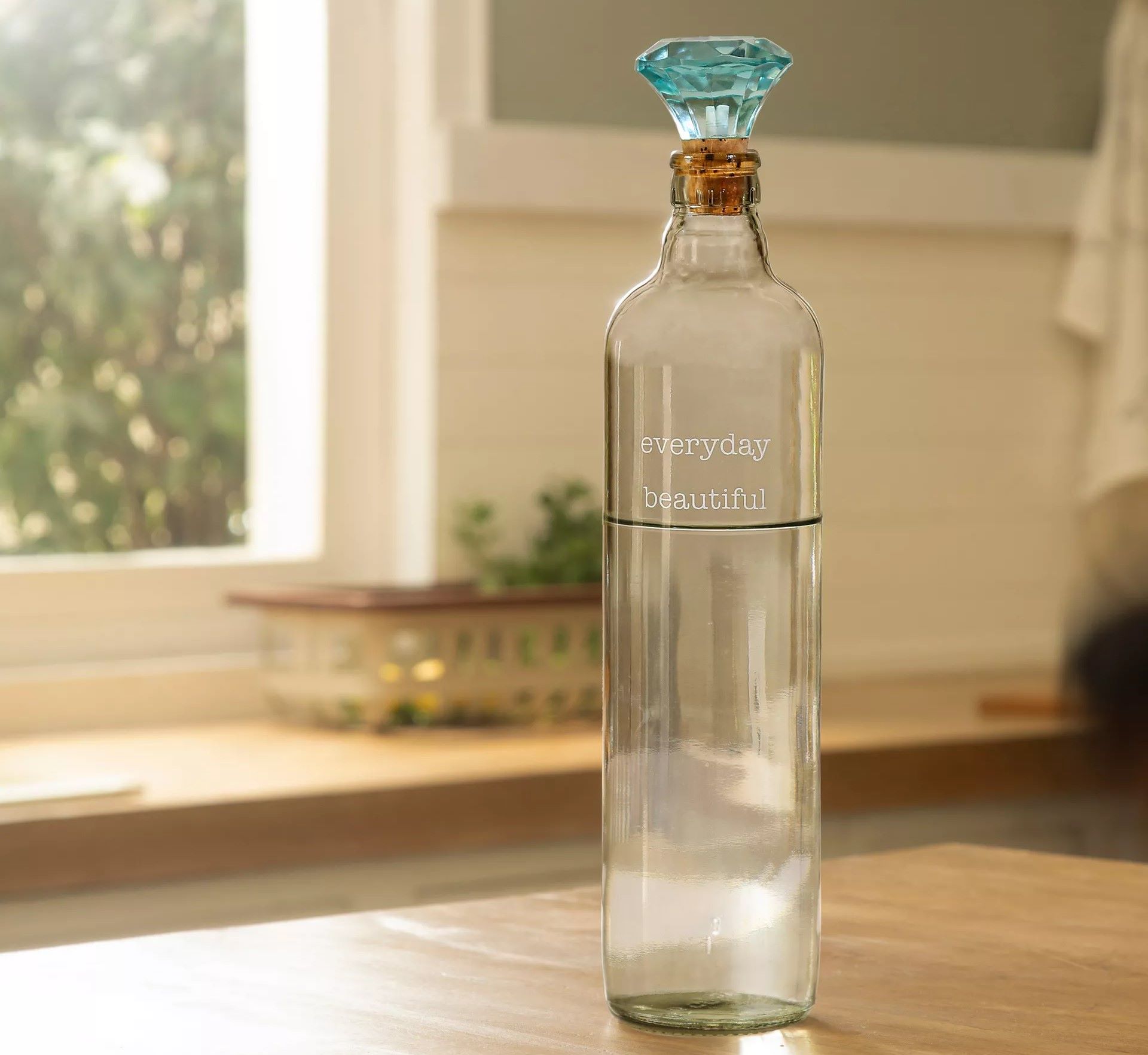
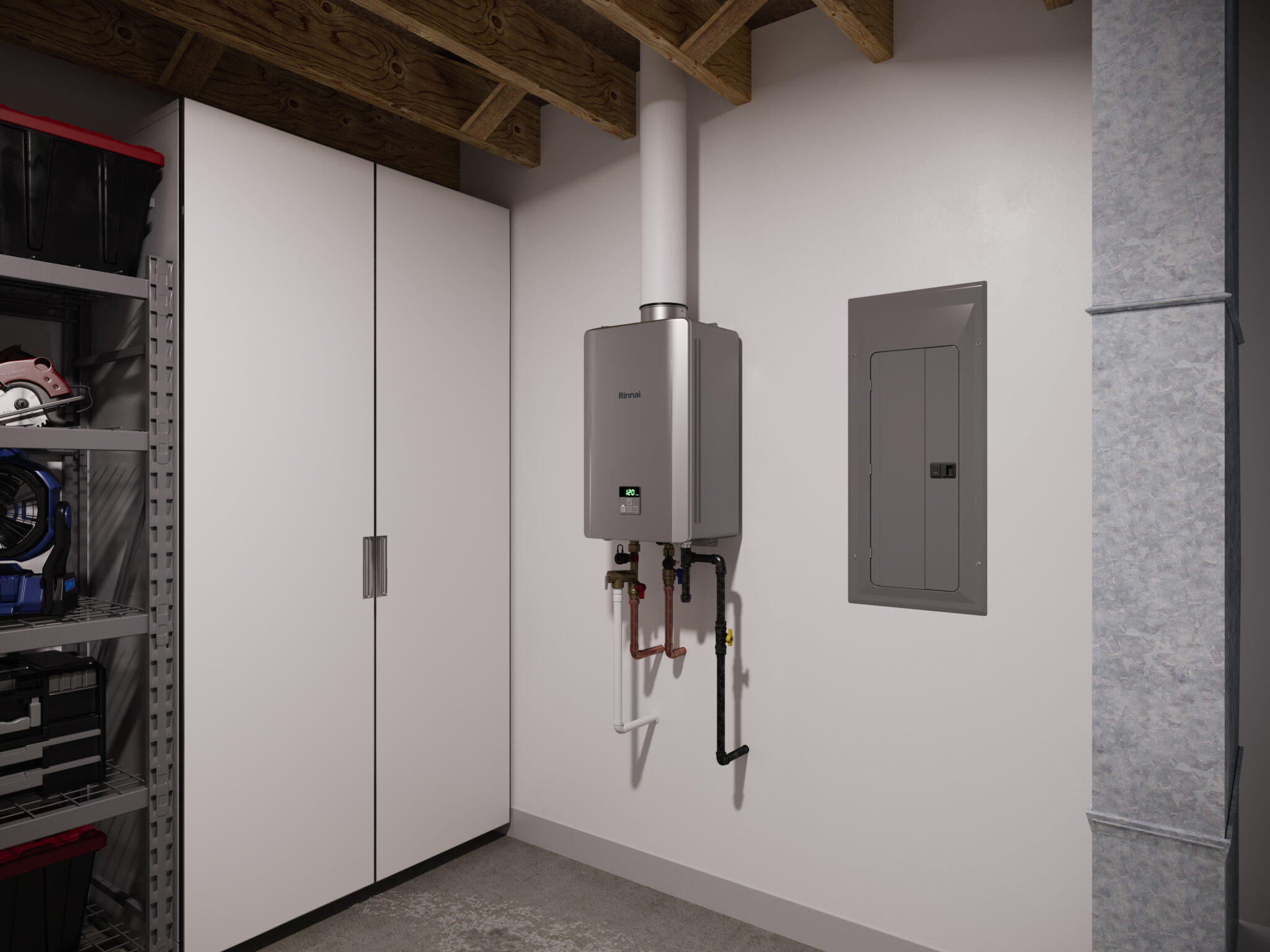
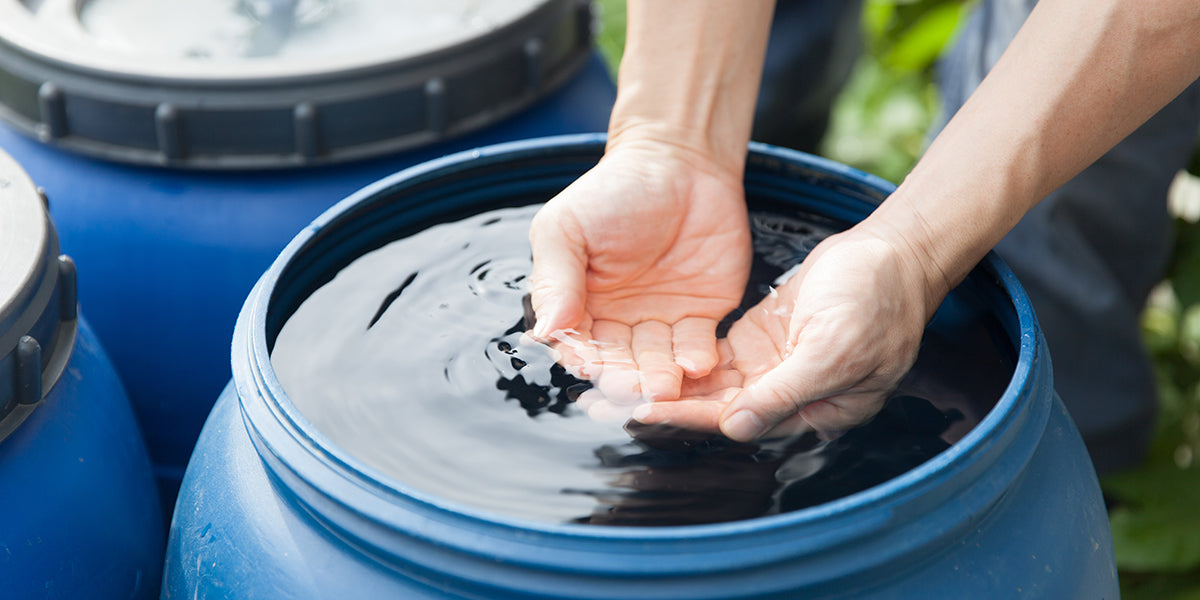
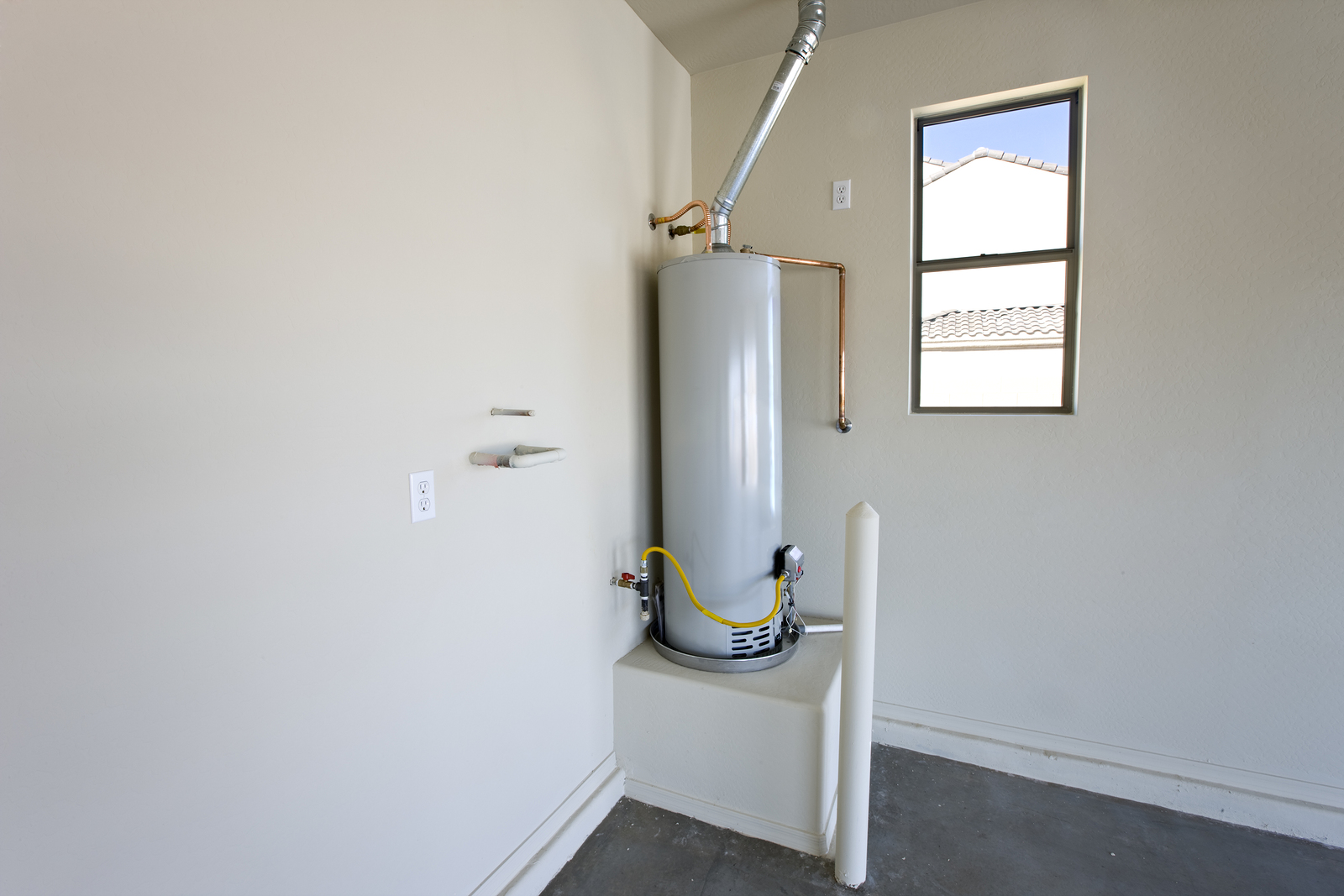

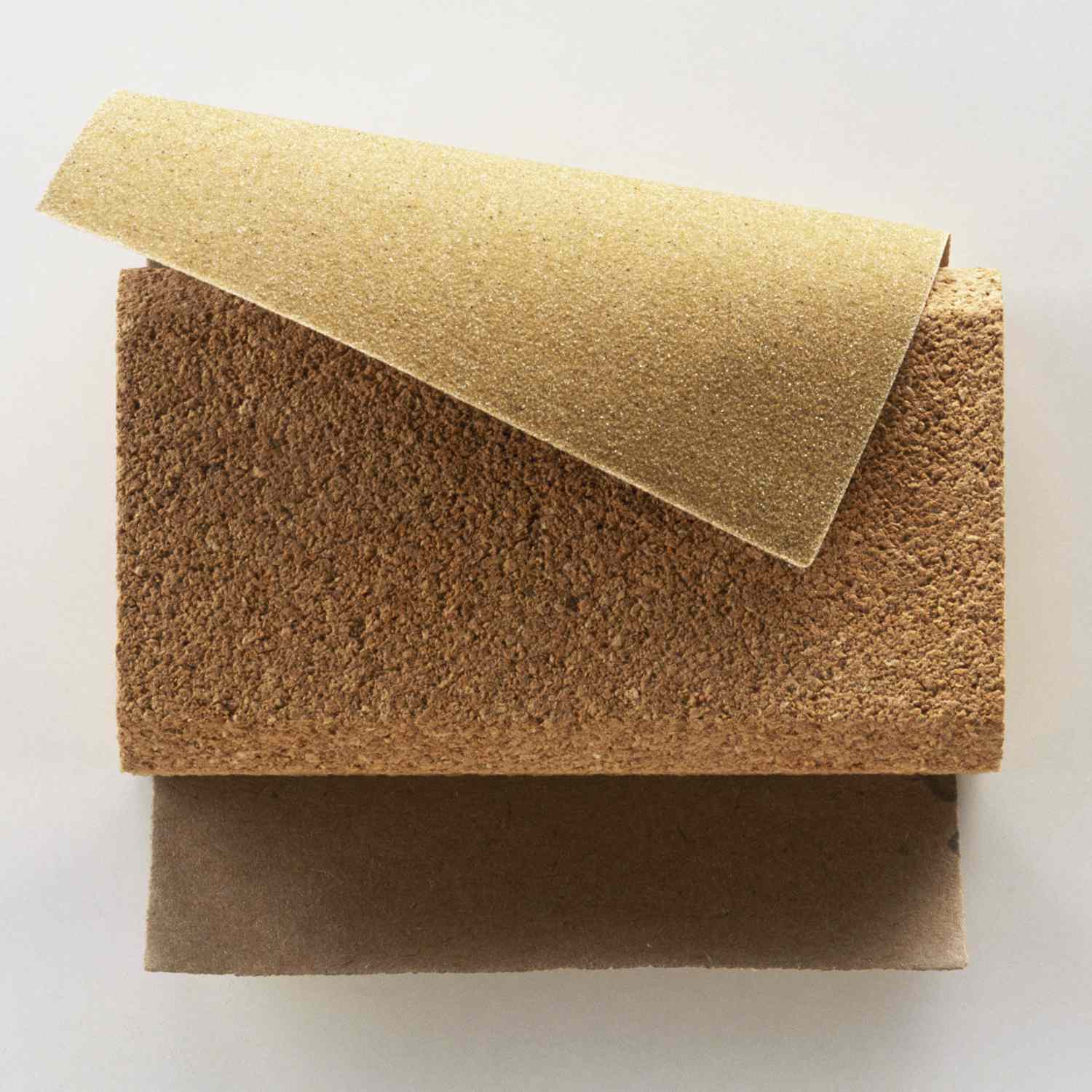

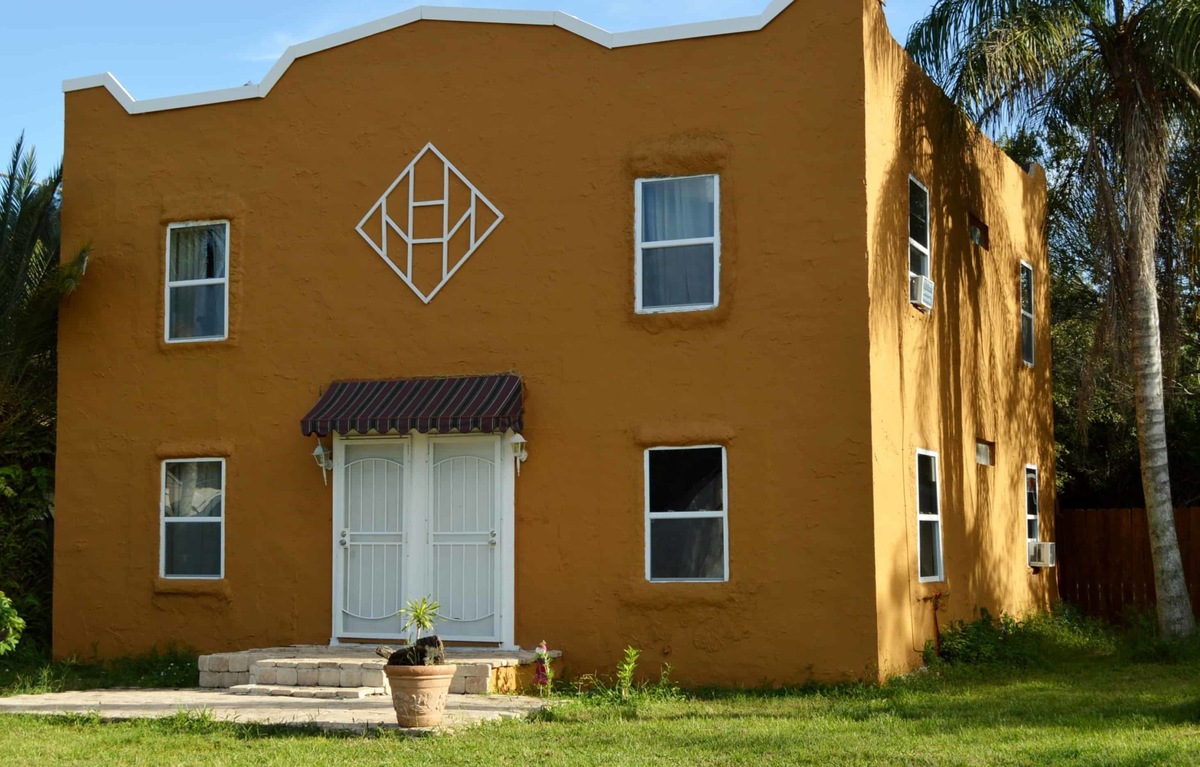
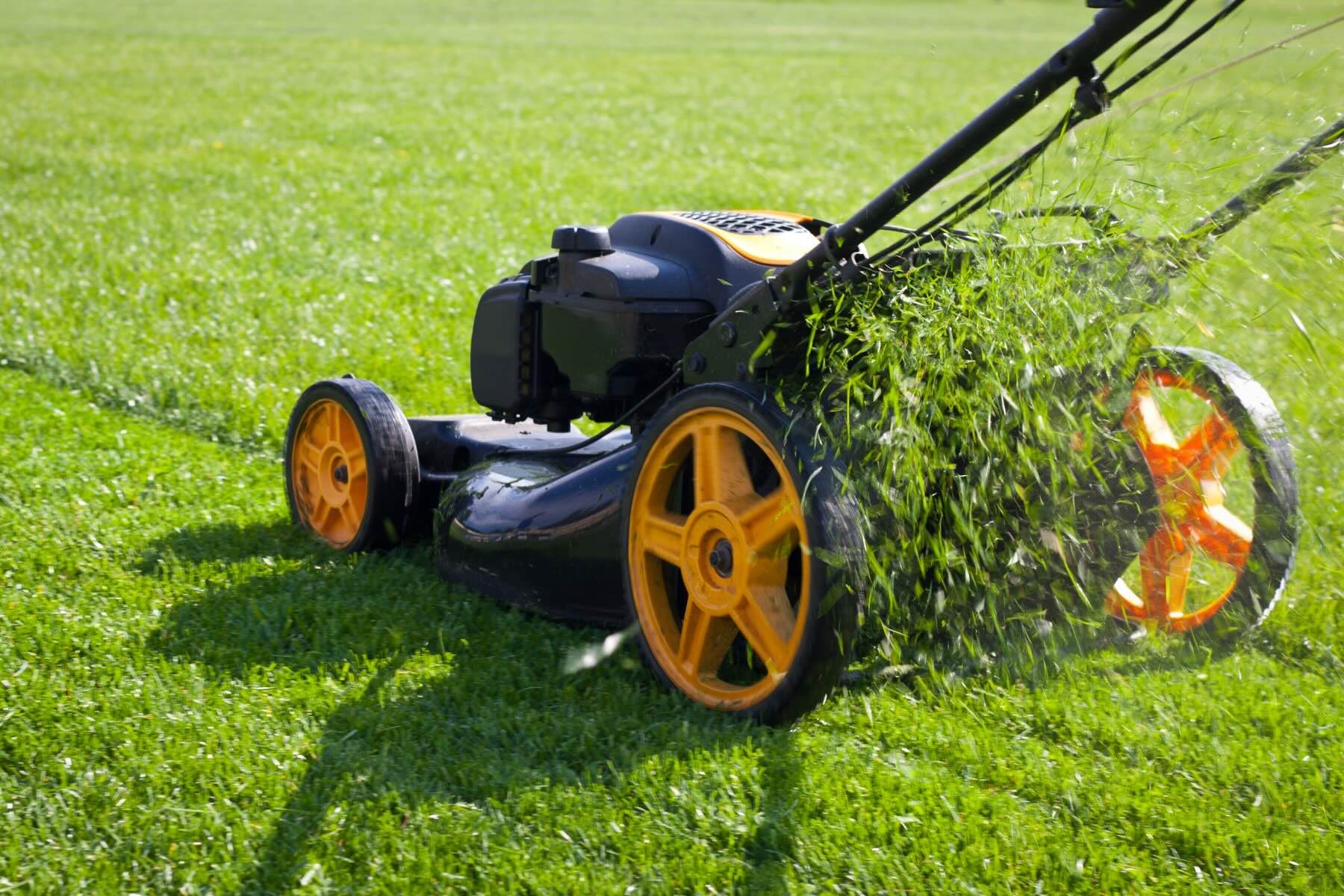

0 thoughts on “How Long Does A Well Water Pump Last”